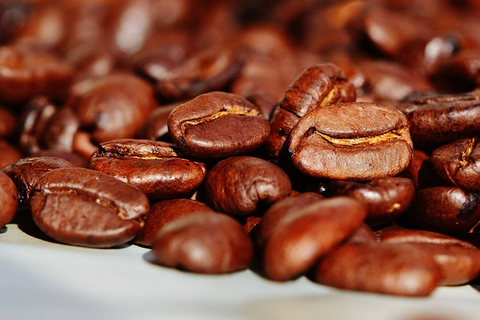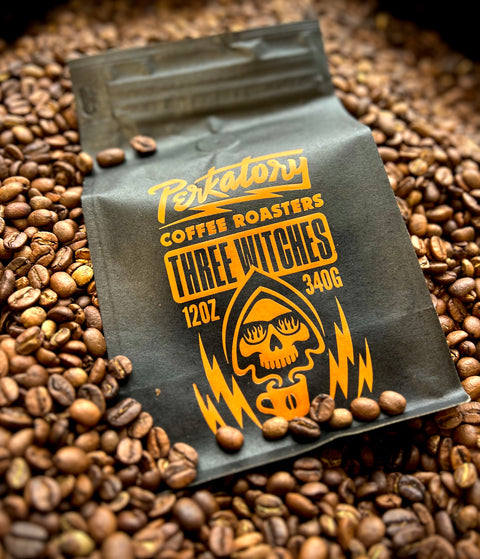Coffee is a worldwide beloved beverage that has been consumed for centuries. People around the globe drink coffee daily to stay alert, socialize with friends, or simply enjoy its delicious taste. Besides being a staple in people's lives, coffee also has an interesting history and many surprising facts that you may not know about.
In this article, we'll take a closer look at some of these fascinating fun facts about coffee.
Origin and History
According to legend, coffee was first discovered by an Ethiopian goat herder named Kaldi. He noticed that his goats became energetic after eating the berries from a certain plant. Curious, he tried the berries himself and experienced increased energy as well. This discovery eventually led to the cultivation of coffee.
Coffee was introduced to the Western world in the 16th century by traders and travelers. It quickly gained popularity, and coffeehouses began popping up all over Europe. These establishments served as hubs for social gatherings, discussions, and even political debates.
Global Consumption

Coffee, the second most traded commodity in the world, holds a remarkable position after oil. With over 500 billion cups consumed annually, it reigns as one of the most popular beverages globally.
The enchanting aroma and rich flavors of coffee captivate the taste buds of millions worldwide. Notably, Brazil, Colombia, and Vietnam stand out as the top coffee-producing countries, contributing to the global coffee culture.
Different Varieties
There are over 100 different species of coffee, but the two main varieties used for commercial production are Arabica and Robusta. Arabica coffee beans produce a more flavorful and aromatic cup of coffee, while Robusta beans have a stronger and more bitter taste.
Additionally, different brewing methods like drip, espresso, and French press can also affect the flavor profile of coffee.
The World's Most Expensive Coffee

Kopi Luwak, also known as Civet coffee, is considered the most expensive coffee in the world. It is made from coffee beans that have been digested and excreted by an Asian palm civet. The digestive enzymes of the animal give the coffee a unique flavor, making it highly sought after by coffee connoisseurs.
Health Benefits
Besides being a delicious and energizing beverage, coffee has an array of health benefits. Numerous studies have indicated that moderate consumption of coffee can potentially lower the risk of heart disease, stroke, and type 2 diabetes. Moreover, this beloved drink is packed with antioxidants that not only aid in boosting metabolism but also contribute to the prevention of certain types of cancer.
With its rich aroma and enticing flavor, coffee has become more than just a morning ritual; it's a delightful elixir that brings joy and potential health advantages to millions of coffee lovers worldwide.
Coffee Beans Are Not Actually Beans
Contrary to popular belief, coffee beans are not technically beans. They are, in fact, the seeds of the coffee plant. These seeds develop inside small red or purple fruits called coffee cherries. For the best quality, these coffee cherries are meticulously hand-picked at their optimal ripeness.
Subsequently, they undergo a process where they are carefully dried and skillfully processed to transform into the familiar roasted coffee bean that we all know and love. This intricate journey from fruit to bean results in the rich and aromatic coffee that delights our senses.
Light Roasts Have Higher Caffeine Content Than Dark Roasts

Many people believe that dark roast coffee has a higher caffeine content than light roast due to its bold flavor and rich aroma. However, this common misconception is not entirely true. The roasting process, which brings out the distinctive characteristics of each roast, also affects the caffeine levels in coffee beans.
Surprisingly, lighter roasts actually retain a slightly higher caffeine content compared to darker roasts. So, next time you're choosing your brew, keep in mind that the level of roast doesn't necessarily determine the amount of caffeine you'll get.
Coffee Can Enhance Your Athletic Performance
While we may often associate coffee with waking us up and keeping us alert, it can also improve physical performance. Caffeine stimulates the nervous system, increasing adrenaline levels and improving muscle contraction. This can lead to an increase in endurance and strength during physical activity.
In fact, many professional athletes use caffeine as their energizing drink to boost their performance before competitions. So next time you hit the gym or go for a run, consider sipping on a cup of coffee beforehand.
A Coffee Made From Animal Poo
While Kopi Luwak maLIGHT ROASTS HAVE MORE CAFFEINE THAN DARK ROASTSy be the most well-known coffee made from animal waste, there are other unique variations out there. For example, in Thailand, a coffee called Black Ivory is produced by carefully feeding coffee beans to elephants. The beans then go through the digestive system of the elephants, and their dung is collected to create the final product.
This process, coupled with the enzymes in the elephant's digestive system, imparts a smooth and less acidic taste to the coffee. The result is a truly exceptional and one-of-a-kind coffee experience.
Coffee Culture
Coffee is more than just a beverage. It represents a way of life for many, connecting cultures and traditions worldwide. Let's explore some examples!
In Italy, savoring espresso is a cherished daily ritual. The rich aroma and intense flavor offer moments of pure indulgence.
In Turkey, coffee is served in delicate cups, accompanied by Turkish Delight. It's a sensory journey beyond the ordinary.
In Ethiopia, coffee ceremonies are a vibrant part of social gatherings. Freshly roasted beans are skillfully brewed and enjoyed with popcorn, creating a harmonious blend.
These examples showcase coffee's global influence, bringing people together through shared appreciation. Each cup offers a unique glimpse into its rich tapestry.
Coffee Shop Can Enhance creativity and Inspire Innovation
Research has shown that coffee shops can be a great place for creativity and inspiration. The bustling atmosphere, delicious coffee smells, and background noise can all contribute to improving cognitive performance and sparking new ideas.
As you can see, coffee is more than just a beverage; it's ingrained in our culture and has a fascinating history. So next time you grab your favorite cup of coffee, remember these fun facts and appreciate the rich and diverse world of coffee.
Coffee Can Lengthen Your Lifespan

Studies have shown that moderate coffee consumption can potentially increase your lifespan. A study conducted by the National Institutes of Health found that people who drink 1 to 5 cups of coffee per day may have a lower risk of dying from heart disease, diabetes, and various brain diseases.
So don't feel guilty about indulging in your daily cup(s) of coffee; it could actually be beneficial for your health in the long run. Just remember to not overdo it and stick to moderate consumption.
The Science Behind Coffee's Aroma
The captivating aroma of coffee is not just a delightful aspect of its taste and enjoyment; it is also deeply rooted in scientific principles. You might be amazed to discover that over 800 distinct aromatic compounds have been meticulously identified in roasted coffee beans, contributing to its one-of-a-kind scent.
These compounds, with their intricate combinations, also have a profound impact on the flavor profile of coffee, elevating it to a multisensory experience that engages and delights the senses. From the rich and earthy notes to the subtle hints of fruit or chocolate, each element adds a layer of complexity to the overall coffee experience, making it truly fascinating and captivating.
Visit Perkatory Coffee Roasters for a Unique Coffee Experience
If you're a coffee lover looking for a unique and delicious experience, then look no further than Perkatory Coffee Roasters. Our specialty coffee beans are sourced from around the world and roasted in small batches to ensure maximum flavor and freshness. Come visit our coffee shop and discover your new favorite cup of coffee! So, don't just settle for your regular cup of joe, explore the world of coffee and discover new flavors and traditions.
Conclusion
Coffee is a much more complex and fascinating beverage than one may initially perceive. Its rich aroma stems from the science behind over 800 distinct aromatic compounds, resulting in a multisensory experience. Contrary to common belief, light roasts contain more caffeine than dark ones, and consuming coffee can even enhance athletic performance. The coffee culture is steeped in tradition, connecting people globally, while coffee shops serve as hubs for creativity and innovation. Remarkably, moderate coffee consumption has even been linked to a potential increase in lifespan. Unusual coffee types, like those processed through an animal's digestive system, further add to the intriguing world of coffee.
If you are one of the coffee drinkers who are looking high-quality coffee, look no further than Perkatory Coffee Roasters. Remember to embrace the diverse world of coffee and enjoy every sip, knowing that you are not just indulging in a tasty beverage but also connecting with cultures and traditions worldwide.
Frequently Asked Questions
What is a scientific fact about coffee?
Coffee, the popular beverage enjoyed by millions worldwide, is a fascinating concoction that boasts an impressive array of over 1000 chemical compounds. With its rich aroma, distinct flavors, and stimulating effects, coffee stands as one of the most chemically complex and intriguing beverages to ever grace our palates. From the delicate balance of aromatic compounds to the intricate interplay of flavors, each cup of coffee offers a unique and captivating experience for coffee enthusiasts everywhere.
Is coffee good for your health?
Consume coffee in moderation has been associated with potential health benefits, including a reduced risk of heart disease and type 2 diabetes. It is important, however, to be mindful of excessive consumption, as it may lead to issues such as insomnia and an increased heart rate. As with any dietary consideration, it is advisable to consult with your doctor to determine the appropriate level of coffee intake for your individual circumstances.
What country produces the most coffee?
Brazil, known as the largest coffee-producing country in the world, is renowned for its rich coffee heritage. Following closely behind are Vietnam and Colombia, also recognized for their significant contributions to the global coffee industry. These countries, with their distinct coffee-growing regions and diverse flavor profiles, play a vital role in satisfying the world's love for this beloved beverage.



